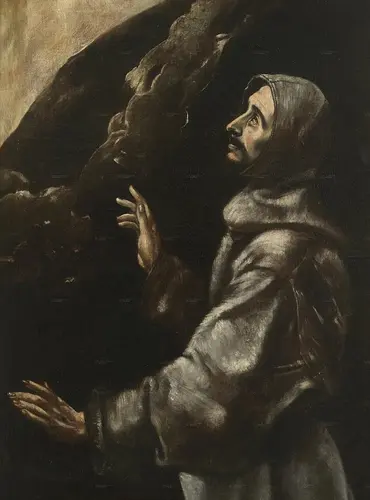Wednesday of the Twenty-sixth Week in Ordinary Time – Odd Years – Lk 9:57-62
In today’s Gospel, we confronted with three disciples who claim they want to follow Christ, but to whom Christ clarifies the requirements of discipleship.
The first incident involves a man who tells Jesus, “I will follow you wherever you go.” Jesus answered him, “Foxes have dens and birds of the sky have nests, but the Son of Man has nowhere to rest his head.” The answer might seem a little contrived, since the man just wants to follow Christ. However, to follow Christ means to truly have no home on this earth. To be a disciple means to long to return to heaven, and to struggle down the dusty roads to paradise. It means to be prepared to endure all sorts of privations, to work long and hard for the Kingdom of God, and to be ok and embrace this, because it is the way that Jesus Christ Himself chose. This world, as Fulton Sheen said, is just scaffolding that is meant to get us to heaven. Once we get there, that’s it. We can ask ourselves: how do we live in the midst of this world?
In the second incident, Jesus Himself tells the man “Follow me.” But he replied, “Lord, let me go first and bury my father.” But he answered him, “Let the dead bury their dead. But you, go and proclaim the kingdom of God.” This saying is a difficult one, especially because “burying the dead” is one of the corporeal works of mercy. However, it’s important that here Jesus Himself called the man to preach the Good News; the man has made an excuse, using something that’s good, but not what’s best. As Saint John Vianney said, “There are no two good ways of serving God. There is only one: serve him as he desires to be served.” The call to serve God must take precedence over everything else. For us, then, we must constantly turn to God in prayer and discernment, to see what it is that God wants from us and for us.
In the last incident, the man tells Christ, “I will follow you, Lord, but first let me say farewell to my family at home.” To him Jesus said, “No one who sets a hand to the plow and looks to what was left behind is fit for the kingdom of God.” If a farmer turns back to what was left behind, the oxen will veer off course, and the furrows will no longer be straight. You can never plow straight if you’re looking over your shoulder, back to what was left behind.
There are many different ways that we turn back on our work: two immediately come to mind. First, we turn back when we think of all the great things that we could have had or would’ve liked to have done, or how nice it would have been to do this or that. In this case, we are like the Israelites, who mourn over the “onions they had left behind in Egypt.” The problem here is really a lack of gratitude. Second, sometimes we’re tempted to turn back to the past and see our sinfulness, and doubt that God really can use us. However, this is to limit God’s mercy by our sinfulness, when we know that God’s mercy has no limits. The only thing God asks from us is our surrender.
Today, through the intercession of Mary, Queen of All Saints, let us ask for the grace to be faithful witnesses to Christ who are willing to give everything to follow Him and to serve Him as He desires to be served.





